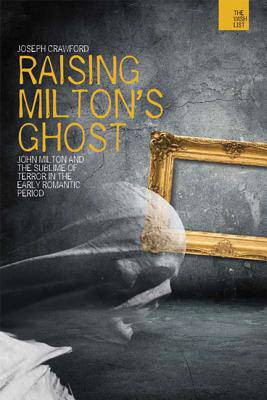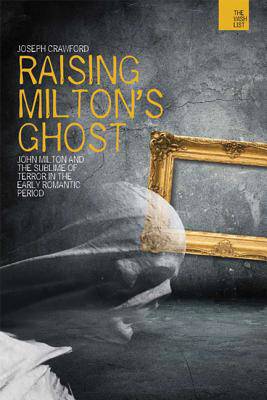
- Retrait gratuit dans votre magasin Club
- 7.000.000 titres dans notre catalogue
- Payer en toute sécurité
- Toujours un magasin près de chez vous
- Retrait gratuit dans votre magasin Club
- 7.000.0000 titres dans notre catalogue
- Payer en toute sécurité
- Toujours un magasin près de chez vous
Raising Milton's Ghost
John Milton and the Sublime of Terror in the Early Romantic Period
Joseph Crawford
203,95 €
+ 407 points
Format
Description
Why was Milton so important to the Romantics?
How did 'Milton the Regicide', a man often regarded in his lifetime as a dangerous traitor and heretic, become 'the Sublime Milton'? The late eighteenth century saw a sudden and, to-date, almost undocumented craze for all things Miltonic, the symptoms of which included the violation of his grave and the sale of his hair and bones as relics, the republication of all his works including his political tracts in unprecedented numbers, the appearance of the poet in the works, letters, dreams and visions of all the major British Romantic poets and even frequent reports of hauntings by his ghost. Drawing on the traditions of cultural, intellectual and bibliographic history as well as recent trends in literary scholarship on the romantic period, Joseph Crawford explores the dramatic shift in Milton's cultural status after 1790. He builds on a now significant literature on Milton's legacy to the Romantic poets, uncovering the cultural historical background against which the Romantics and their contemporaries encountered and interacted with Milton's reputation and works.Spécifications
Parties prenantes
- Auteur(s) :
- Editeur:
Contenu
- Nombre de pages :
- 240
- Langue:
- Anglais
- Collection :
Caractéristiques
- EAN:
- 9781849663328
- Date de parution :
- 26-04-11
- Format:
- Livre relié
- Format numérique:
- Genaaid
- Dimensions :
- 157 mm x 236 mm
- Poids :
- 521 g

Les avis
Nous publions uniquement les avis qui respectent les conditions requises. Consultez nos conditions pour les avis.






